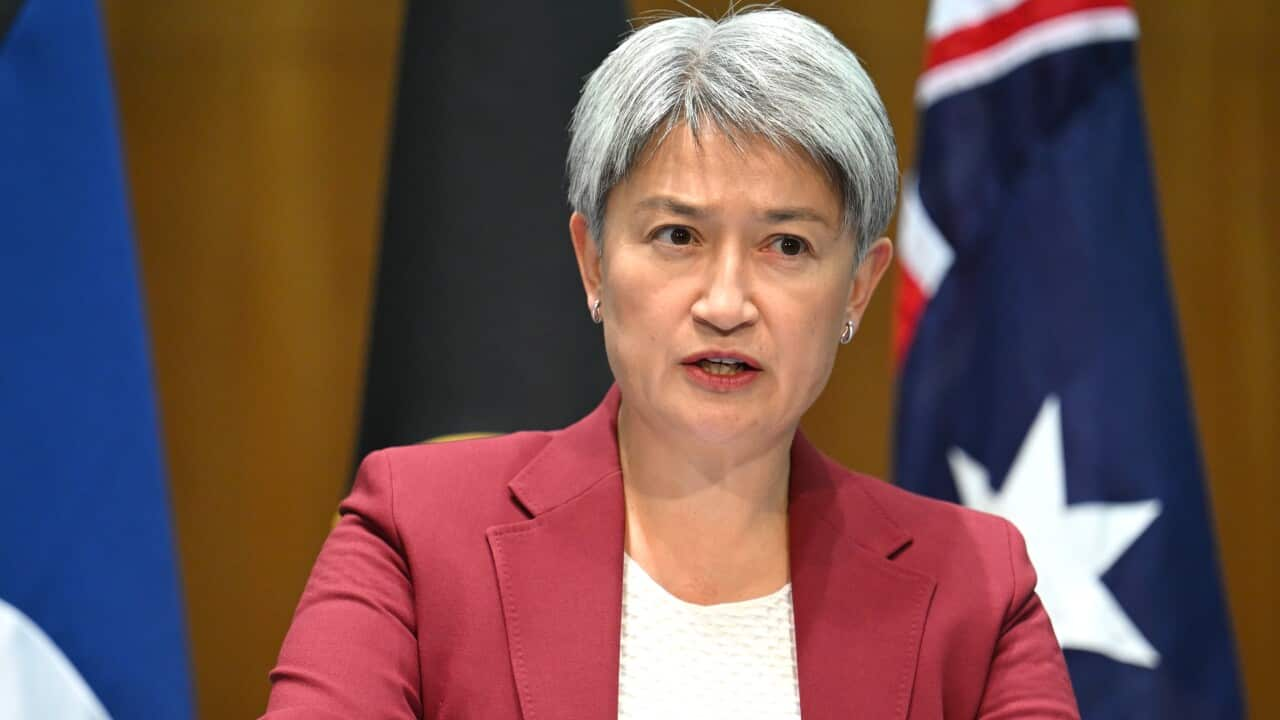Foreign Minister Penny Wong is urging Australians to take any available route out of Lebanon as the government ramps up efforts to assist thousands leaving the war-torn nation.
Israel renewed its bombardment of Lebanon’s capital Beirut, a stronghold of the Iran-backed Hezbollah militant group, on Wednesday
Fears over a full-scale regional war have prompted several countries to start evacuating their nationals.
With explosions rattling Lebanon’s, Wong confirmed the government has secured 500 extra seats on commercial flights for Saturday on top of the flights that have already departed.
“We have been working this week to secure seats on flights. Some seats were secured on Monday and Tuesday, and I can confirm that we have secured 80 seats on flights that are leaving today,” she told reporters on Thursday.
With at least 15,000 Australians currently in Lebanon, the government wouldn’t be able to help all Australian citizens there.
Here’s what we know.
Australians struggling to board flights out of Lebanon
Prime Minister Anthony Albanese has reiterated advice urging Australians to leave Lebanon on available flights.
“We’ve been calling for many months for people to leave the region, for Australian citizens to come to safety in Australia. This is a dangerous region at the moment,” he said on Wednesday.
“We again reiterate that the people should take any opportunity that they can to leave, but the Australian government, of course, will always do our best to look after Australian citizens.”
Wong revealed that 1,700 Australians and their immediate family members had registered with the Department of Home Affairs as wishing to leave Lebanon.
Ali Bazzi from Arab Council Australia said many Australians visiting relatives in Lebanon are now struggling to secure seats on limited commercial flights out of the country.
“We’ve heard that some of them managed to fly from Beirut to Dubai, and there’s a lot of them who are stuck in Dubai trying to find places on flights from Dubai back to Sydney or Melbourne,” he told SBS News.
He accused the government of playing a “very negative, neutral role” and called for it to step up efforts, including chartering flights out of the region.
What are the government’s evacuation plans?
Alongside the seats secured on commercial flights out of the region so far this week, Wong revealed 500 seats were available from Lebanon to Cyprus on Saturday.
“Obviously, the operation of these flights will be subject to the security situation, and of course, the airport in Beirut remaining open, what I would say to Australians who wish to leave, please take whatever option is available to you,” she said on Thursday.
She warned the options would become more limited as time went on.
“We are very worried about the situation escalating if Beirut airport closes, the options for departure become even less over the coming days and weeks, to continue to evacuate,” she said.
The Department of Foreign Affairs and Trade, which has secured the flights in partnership with Canada and the UK, reiterated Wong’s concerns as it advised there is a “risk Beirut Airport may close for an extended period”.
SBS News understands the government has several contingency plans in place when it is no longer safe to fly.
An evacuation by sea is on the cards, similar to the last mass Australian evacuation from Lebanon during the 2006 war.
What challenges does the government face in evacuating Australians?
Dr Regina Jefferies is a laureate postdoctoral fellow within the evacuations research hub at the University of New South Wales.
She said the government faces several challenges during mass evacuations as “everything we know about how we move in normal times is out the window”.
The government’s immediate challenge is identifying the Australian citizens in Lebanon and other noncitizen connections with Australia within a “very fluid and disorganised context”.
“One of the most challenging things I think is when those situations occur, people do not always have access to identity documents, personal documents, things like that,” she told SBS News.
Jefferies said collaborating with other countries on aspects of safety, the viability of plans and the best way to evacuate people is “absolutely essential” to the success of evacuations.
What are other countries doing?
Canada, which has over 45,000 citizens in Lebanon, secured 800 seats on commercial flights earlier this week.
France has dispatched a helicopter carrier to the east of the Mediterranean as it prepares to evacuate foreign nationals from Lebanon.
Britain has started chartering commercial flights out of Beirut and deployed 700 soldiers to Cyprus to prepare for a possible evacuation of citizens.
Cyprus has offered third-country nationals “safe passage” and is likely to become a processing hub as the closest European state to the Middle East. In 2006 it was temporary host to 60,000 people fleeing the region.
While nations are helping citizens leave Lebanon, no country has issued an evacuation order.
– With additional reporting from Agence France-Presse.
